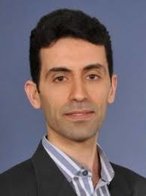
Prof Tom McLeish
Theoretical physicist and the first chair of natural philosophy at the University of York
Prof Tom McLeish is a theoretical physicist and the first chair of natural philosophy at the University of York. His work is renowned for improving our understanding of the properties of soft matter, such as liquids, foams and biological materials. His Discovery public lecture in May 2017 was entitled Faith and Wisdom in Science and was based on his eponymous book. Prof McLeish is both a scientist and a lay reader in the Anglican church, which means he is licenced to preach and conduct some religious services but not licenced to celebrate the Eucharist. His book explores how and why, contrary to popular belief, science and religion are “utterly compatible”. The Guardian newspaper described it as “a rich, crowded and discursive book”. Listen to Dr Aoibheann Ni Shuilleabhain’s interview with Prof McLeish here.
